

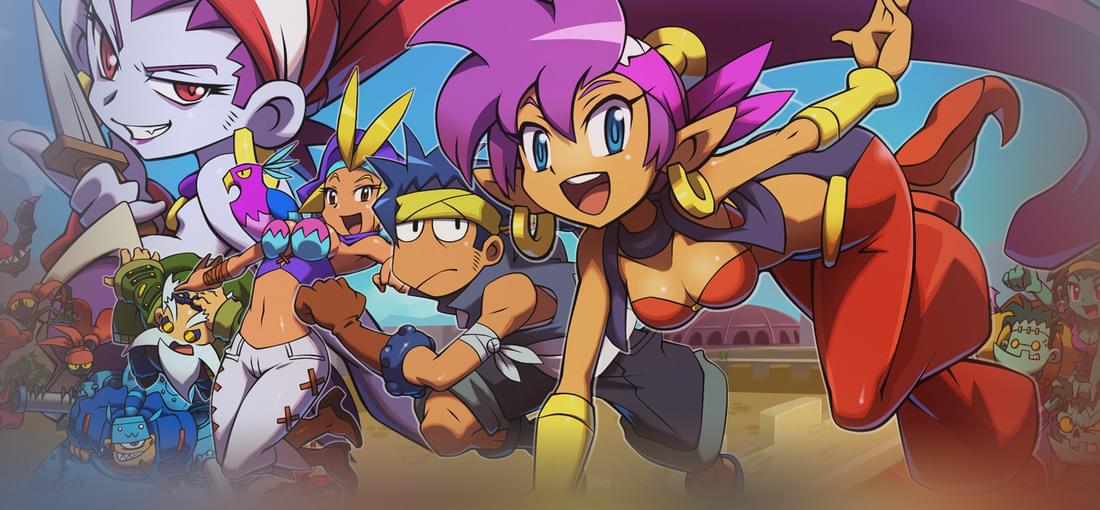
Shantae and the pirate's curse is the third game from the series about this charming genie and the mission to protect her town, a port of the original game for Nintendo 3DS. If you have played any game from the series before you know what you will get, it's a very reliable franchise in terms of what it will deliver. If not, on this game you discover this cute genie that can use her hair to whip her enemies, moving through less than a dozen levels as she uncovers powerups, beats minibosses, and chats with friends and rivals she knew from previous games. a fully defined world that allows the series to focus more on the design and the silly but effective humor than on anything else. It's a winning formula: Despite the light fanservice and the casual nature of it, playing a Shantae game is always a blast. Killer music, cool graphics, always with a couple of challenging parts to 100% it if the game feels too easy. There's a continuity to the stories however. On the last one Shantae lost her genie magic and on this one she has to work together with her main rival Risky Boots in order to stop a bigger menace, and that's where the game disappoints a bit. Not in terms of the story, because the story is always kept in this unserious tone (even if it's against the great evil taking over the entire world) but in terms of what the game allows to do. Instead of actually working with our frenemy, Risky is just a glorified chaffeur for most of the game. And even if instead of genie powers we get to borrow Risky's pirate weapons as our power ups, we barely see her dressed as a pirate in the entire adventure, normally this wouldn't be an issue but you can see the design sort of backtracked in such a decision, when Shantae uses the weapons her attire does change. I'm not sure if such kind of decisions are part of the comfort zone Shantae is happy to stay on, but the baseline is so good it's really hard to argue against it. As said earlier, the game is a blast.

Senran Kagura - Shinovi Versus is the second game of this curious franchise about ninja girls with flimsy wardrobes and utterly shameless fanservice, and if you happen to ignore that, you get rewarded with a game that despite its flaws at its high points feels a lot more fun than it has any right to be. The plot focuses on shinobi schools and their elite teams, all girl squads of 5 members that can be "good" or "evil" shinobi. The traditions invites them to challenge each other at high stakes, and for each of these schools we get a different storyline that is very repetitive because in the end, all you're doing is beating up all the characters from other schools. There's a decent effort to add variety anyway, and while not always coherent, the depth from the continuity in the different school stories does add up. On theory, this means the game should be an absolute drag, but because the battles are so fast paced and dynamic (completing a "mission" takes like 2 minutes on average) it only means it's not suited for binging or trying to complete it in one sitting. The experience remains solid throughout because there's a lot of care in providing the fun factor, every girl has different cool looking moves and rewarding combos that make it feel worth the hassle to level up the character, as well as different "modes" of battle (normal, ninja, frantic) and unique special powers that never stop feeling special to watch in action. Common concerns in fighting games like balance or difficulty are set aside for the sake of fun, and it ends up being a wise decision. The rest is bells and whistles, but there are a lot of them. Individual silly stories for all the characters, a store with plenty of options to dress the characters however you want.. There are minor gripes with the controls, and the attempt to bring a fully fleshed world piece by piece of the story gets hurt a lot by the repetitive gameplay, but the core is solid, and it never stops being fun.
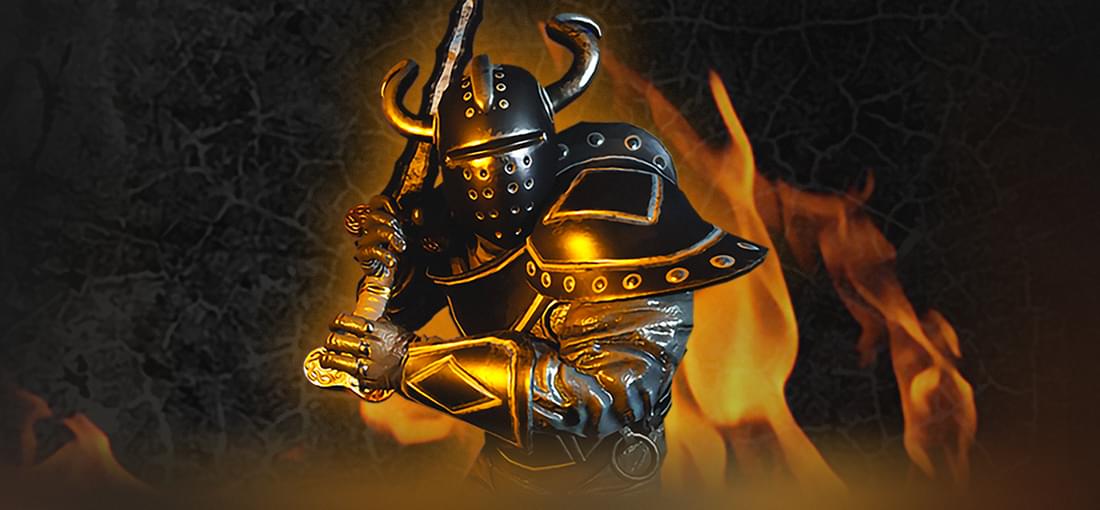
Sir Whoopass is a parody game that never attempts to hide its nature, so it banks all of its value on the funny moments it can produce. On such games, the main question is if it does overstay its welcome, and in this case the answer is yes it does, but not for the reasons you would expect. On Sir Whoopass, we are this sort of failed experiment knight with a cute fascination for hats and questionable fashion choices that after escaping from our evil creator get eventually involved in a quest to bring him down to earth a bit. The game starts strong with many jokes for the tutorial level that work out quite nicely, but there are three big jokes that fail to land here: the open world, the poor programming and the excess of dungeons. The open world outlives its parody potential very quickly, so it becomes a slog for most of the game, and while the dungeons are both short and decently designed, by that time the parody factor has also ran out. That wouldn't be a crime if the game itself was a satisfying experience, but in truth this is just a mediocre unity produced game, poorly performant, slightly buggy, nothing to write home about visually. The sound is decent, but is not enough to save it. While it was a nice surprise the game never became too annoying or abrasive with the humor, in the end it screams unpolished, and not as a punchline. After the strong start there's sadly not much worth staying for, and for a good portion of it you don't get a hilarious hack n slash experience as advertised, you just get.. a standard Unity game experience. -1 because there's just not enough in it to recommend and -1 for the minor bugs, performance issues and general lazy choices that make this not that enjoyable beyond the humor.
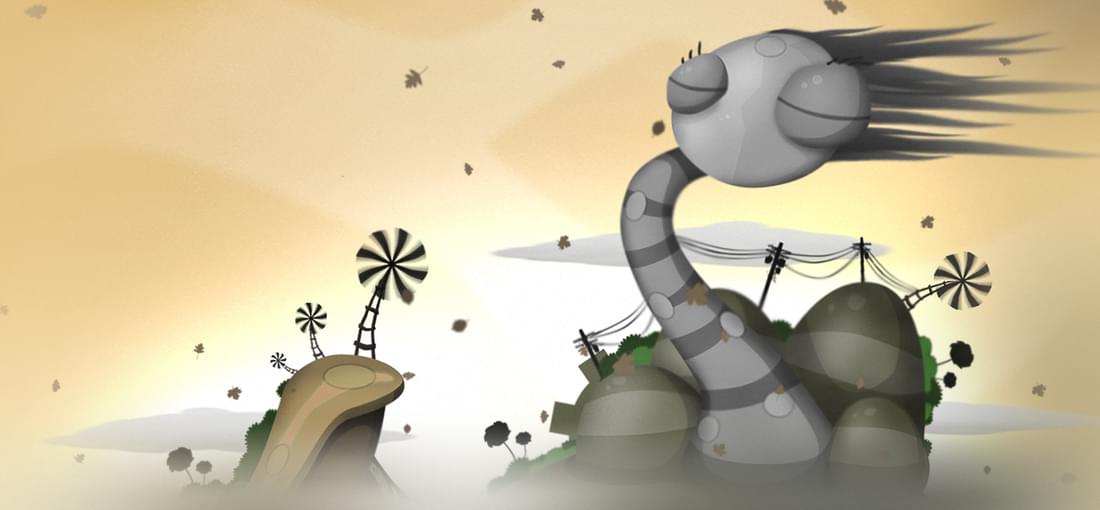
World of Goo is a puzzle game from 2008 that made a lot of noise back then because it was a Wiiware hit, truly enjoyable for what it was in that era when we were discovering those new wireless game controllers, getting the most of them on physical games (or breaking TVs) but not a lot of it on more normal experiences. Or at least that's how I remember it. The puzzles are simple to understand, fully based on physics as we control little balls of goo and try to get them through a pipe along 44 levels, in 5 chapters. A lot of levels are fairly straightforward, but some here and there are quite clever and like a good puzzle game, manage to frustrate you, make you think, and give you the sweet satisfaction when you finally clear them. The puzzles are also quite short, and if you want an extra challenge there's an optional hard mode with tougher requirements to clear a level. So far so good, a nice and cool casual game. Why did it age well then? because the physics are still brilliant. It's easy to understand why your goo structure toppled, controls also work exactly as intended: good when you need accuracy, bad when you have your small structure full of little balls moving around and can't pick the one you need right out of the bad, a deliberate inconvenience that might be the special sauce behind this "connect the dots" experience. It just works. What didn't age well is the whole outlook. Sound is fine and the little noises the goo balls make are great, but the whole UI and cutscenes do look dated. It's not awful, it just looks like a product of its time in a way. It's also missing a couple of features that could have made it a timeless game, mainly a level editor and some more of those difficult puzzles because really, quite a few of them are introductions to some new type of goo ball, and a few of them are also simple actions for the chapter endings. The story was also a bit eh, but it doesn't really matter. Close to perfection, better than I remembered.
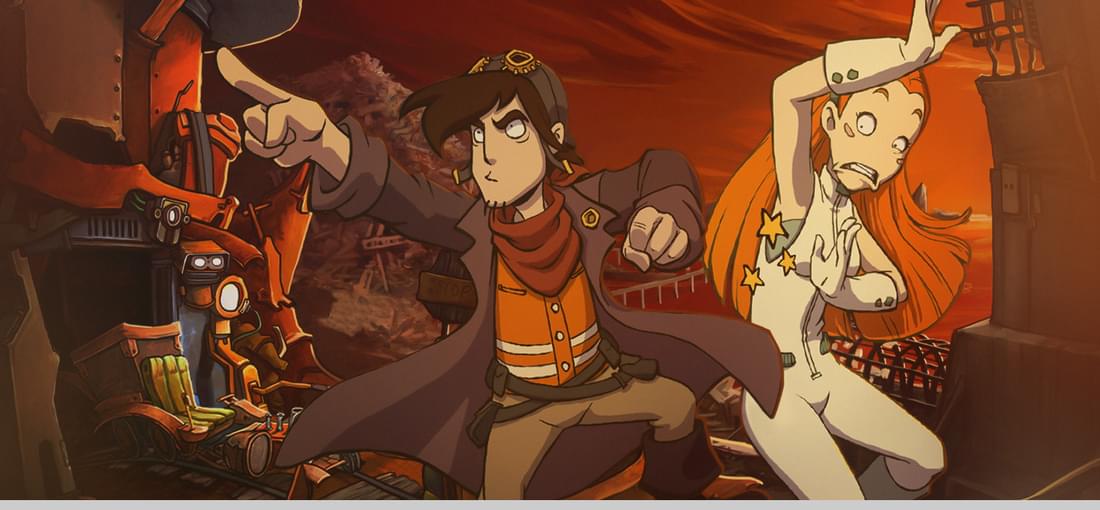
Deponia is a point and click game, you know how they go. They are slow, provide no adrenaline but instead the satisfaction or solving weird puzzles and if they are done well, they come with a memorable story and characters. Deponia gets almost everything wrong sadly. What Deponia has going for it is the worldbuilding. It's nothing original, the typical upper class denies entry to lower class trope, but the art is nice and it works out nicely when things really do look a lot prettier once you leave your little slum. But the rest is more misses than hits. On Deponia we're Rufus, a self centered ambitious guy that wants to leave Deponia and escape to upper class Elysium, a city floating up in the sky. Nobody seems to tolerate his attitude and for good reason, the humor just lacks skill. His ambition and drive take a backseat to plenty of poor lines about how deluded and conceited he is and we have to tolerate that for almost half of the game too. Luckily the charade is dropped when things get serious in the end, and the cliffhanger ending is kind of earned. The other characters you sympathize a bit more, they don't have any depth other than accepting their fate but at least they're not such a PITA. Our other important character is Goal, an Elysian girl that falls from the sky and spends sleeping for most of the game so she doesn't really stand out here making her the weak part of that ending. So the characters and story aren't great, then we have the puzzles. Like on most games of this genre a some are satisfying and some are headscratchers, things that don't really make sense and you stumble upon out of luck or cheating. However, there are game breaking ones, things that lock you out and require you to load a save from Daedalic's official website in order to continue. I got this at the pigeon puzzle, and needless to say lost faith in the game from that point on. The experience ends up becoming more frustrating than fun in the end, sadly.
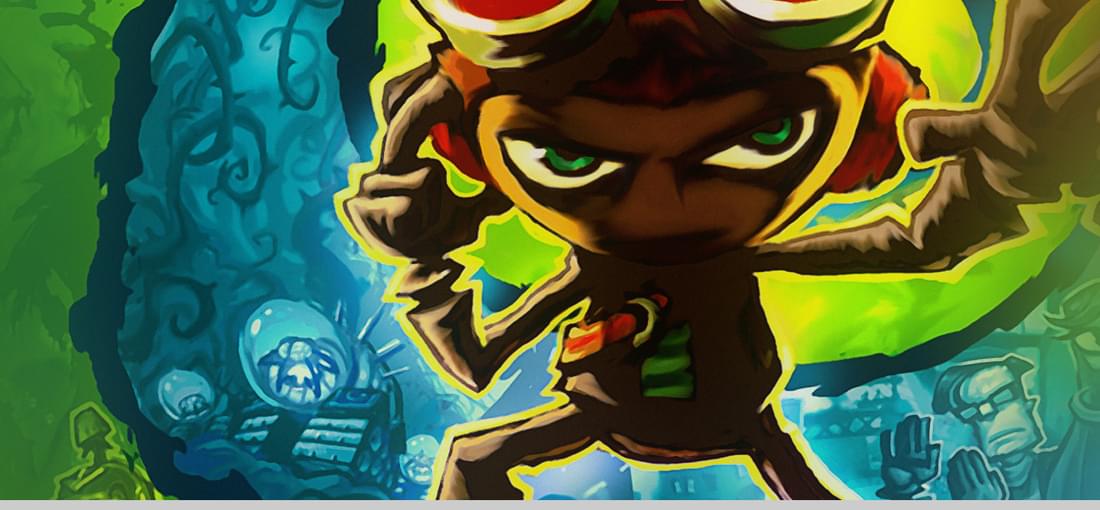
Psychonauts is a sort of a cult game, one of those that makes something so well it gets fondly remembered even if there is a bunch of other not so great things on it. For Psychonauts, we talk level design, with one particular level receiving rave reviews back then for very good reason. On Psychonauts we play as Razputin, a kid that sneaks into a camp for kids with psychic abilities because he wants to become a psychic soldier, and fortunately for him he has the potential for it. He has to do it way faster than other kids because his father disapproves however. In 2 game days he does a full run, saves everyone, even gets a gf. As psychics we get to transport ourselves into the minds of others so design wise anything goes, but the variety of the worlds is spectacular. A lot of care went into it, nothing is recycled, and the elements it plays with are most of the time really charming (emotional baggages, mental cobwebs, memory vaults), the so acclaimed level is one where we get into the mind of a conspiracy theorist, it still leaves its mark. Other things the game does well is offer a good range of powers or skills, create a charming environment in the camp (it's worth it wasting time talking with the other kids) and not going crazy with the difficulty, although this wasn't the case in the original release. So why 3 stars? A big problem is the story. As amusing and cool as the levels were, the whole thing requires to "sneeze your brain" a bit to stay immersed, and the ending feels super rushed. Despite the effort creating the characters and environment they hardly matter, One "real world" level breaks the entire illusion of psychic world because it goes too crazy, and the end has a healthy dose of good old deus ex machina. The other problem was technical issues: Poor camera mechanics, a weird save/load system and a "looping" glitch that to me sadly became more noticeable as the game advanced. Without the issues it would have been 4 stars, still recommended.
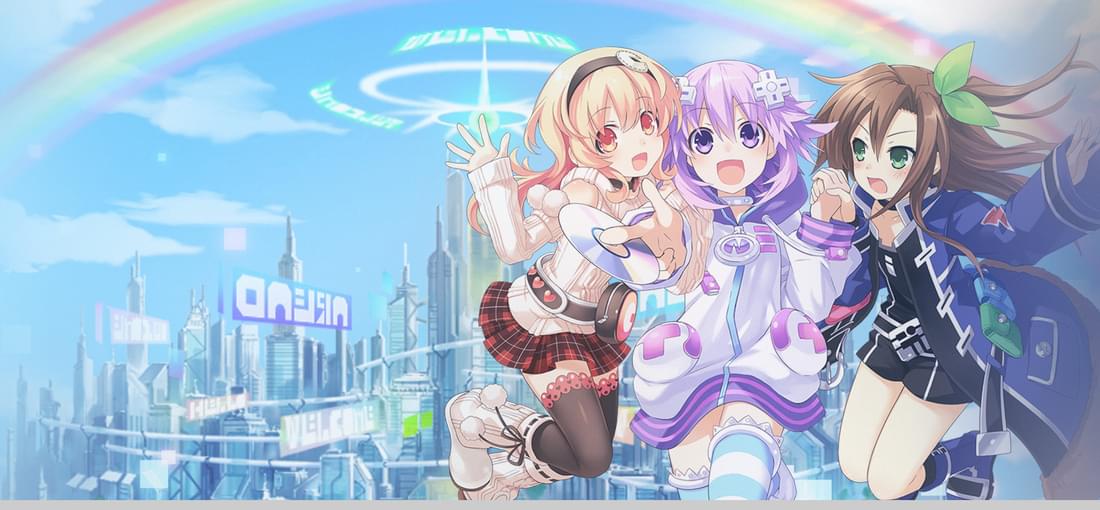
Hyperdimension Neptunia is in many ways your standard JRPG fare, cute girls with expressive eyes, turn based combat that demands grind, lots of content designed to steal a month or so of your time and lots of little scenes when the characters interact with each other to make the world feel alive. Our protagonist in this case is an amnesiac girl that fell from the sky, and the setting is the world of Gamindustri, comprised of four main lands. Each land has a Goddess, and the Goddesses are locked in an eternal fight for power in the "console war". What makes it stand out then? It's mostly one thing, a pretty cool UI that shows the extent the game commits to this whole "world inside gaming consoles" idea, not only with mere name references but with features like burning discs or getting to customize our experience using "plans", a system that is basically akin to filling your limited storage space with the features you decide. It lets you feel like you really earned those special benefits for your grinding and gives you the power to customize some of the game experience at your discretion, once you manage to unlock such features. UI aside we have a lot of features to get ourselves lost on, quality VA (and quality translated dialog) and charming enough characters, even if they are hollow tropes, a consequence of the game not taking itself seriously despite offering a fully fleshed out gameplay, a fun enough contrast to be captivating for most of the game. The story doesn't fare so well though, the whole setting doesn't matter at all and it quickly becomes a generic stop the evil villainess plot. It makes the late stages of the game feel unsatisfying, and while the humor is mostly good, sometimes it veers into the typical juvenile territory, or into scenes that simply fail to land and feel nonsensical instead. -1 because of a weak story despite the compelling world created. Most of the other "bad" things are part and parcel of the genre.
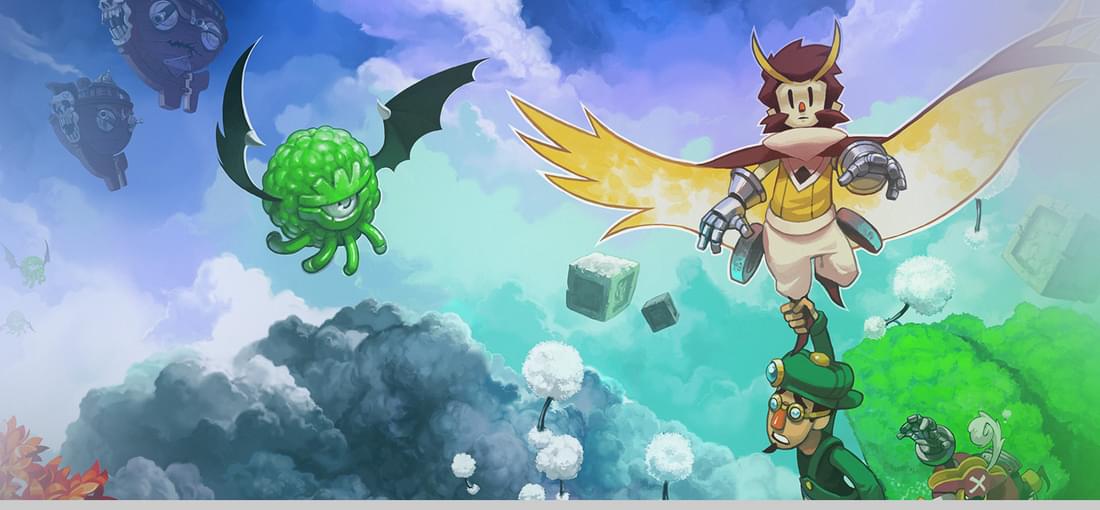
Owlboy is, at first glance, another one of those pixel graphic platformer/metroidvania that seem to be a dime a dozen on GoG. We control a mute kid thrown into a mission to save the world, chase our enemies around the world, find minibosses.. the usual. It'd be hard to stand out with such an offer, but this game took almost a decade on development and it shows. The pixel art is really nice and it quickly becomes charming watching our protagonist, Otus, making happy or sad faces, the music is excellent and the mechanics that involve a lot of flying (the world is supposed to be these floating island things but we just go up and up and up) work perfectly, with only minor gripes on things like mouse aim (why is keeping the mouse within the window not a default option, I don't know) and sometimes color/surface choices that can make navigation confusing in some parts. But when it comes to the rest of the game design wise, it's amazing: The levels are challenging and squeeze full use of everything you can do and need to learn to complete the game, to the point virtually the entire run feels like a cohesive experience, like you are not doing the same over and over. The mechanics behind your "weapons" (summonning/carrying around your travel partners) are extremely well done, the forgiving checkpoints line up well with the atmosphere the game conveys (although not with the entire save the world thing) and even if the story doesn't connect perfectly, the characters bring enough heart in it to maintain your interest, at least during most of it. It might not be a memorable all timer, but I feel it came surprisingly close. -1 because of those little flaws and dissonances, mostly story wise and trying to make compatible a peaceful and nice atmosphere with world ending shenanigans.
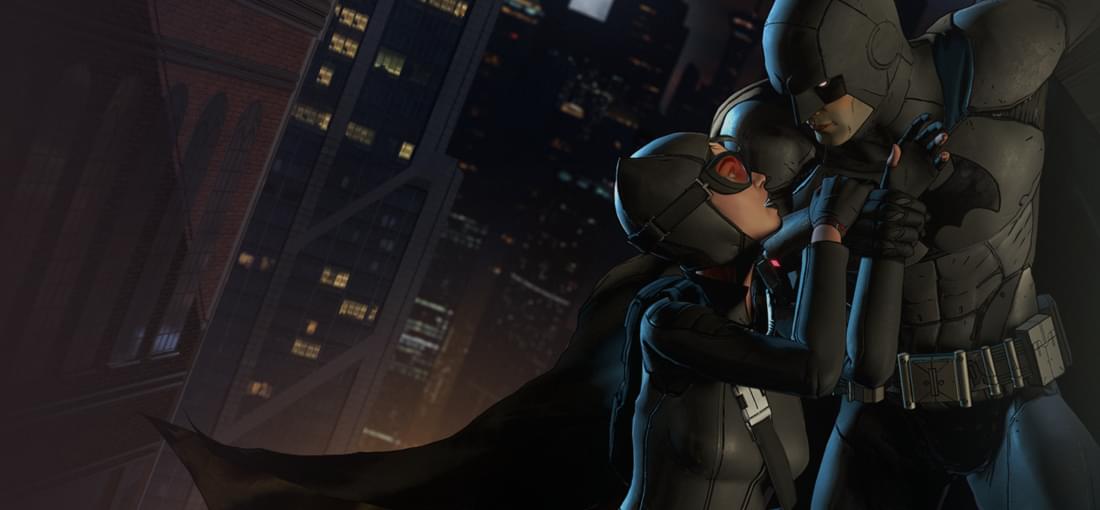
This telltale game isn't really much of a game, but it does a pretty good attempt to bring what an interactive comic with all bells and whistles would entail. It doesn't quite achieve it, but it leaves you understanding why: The main story has to move forward one way or the other, and covering potentially infinite branches would involve a crazy effort. A lot of things are done with care, the art and atmosphere is fantastic, the story has a healthy amount of detail and balance to make it captivating as its own batman tale, the minigames are short and interesting enough and even if your options are limited, a lot of times they have enough charm: You can try your best to side with a specific character, or you can just stand there and say nothing a lot of the time which is amusing. It's flawed because it wants to be more than an interactive comic book, and at the parts it can, it fails. This is done mostly with quick time events in fights, but those are so forgiving and the bad ends so generic and low stakes, they just end up substracting immersion from the story. The show must continue, but the lack of any sort of branch that deviate from the main path also detracts from the feeling telltale tries to deliver, at best you feel they're just selling dreams. You never escape the feeling that this could be better if it wasn't a game, and that's a problem simpler approaches don't have. It's an important problem, but with these kind of games what matters most is if the story is enjoyable, and in this case, it is. I would happily sacrifice graphics and audio for more words and choices, but that's just me, the potential is there for what could be contained interactive universes. -1 because you never escape that feeling that it should have been better than it is, in terms of having a story that branches out and where your choices matter enough to make you want to replay the game at least another time. It just doesn't happen.
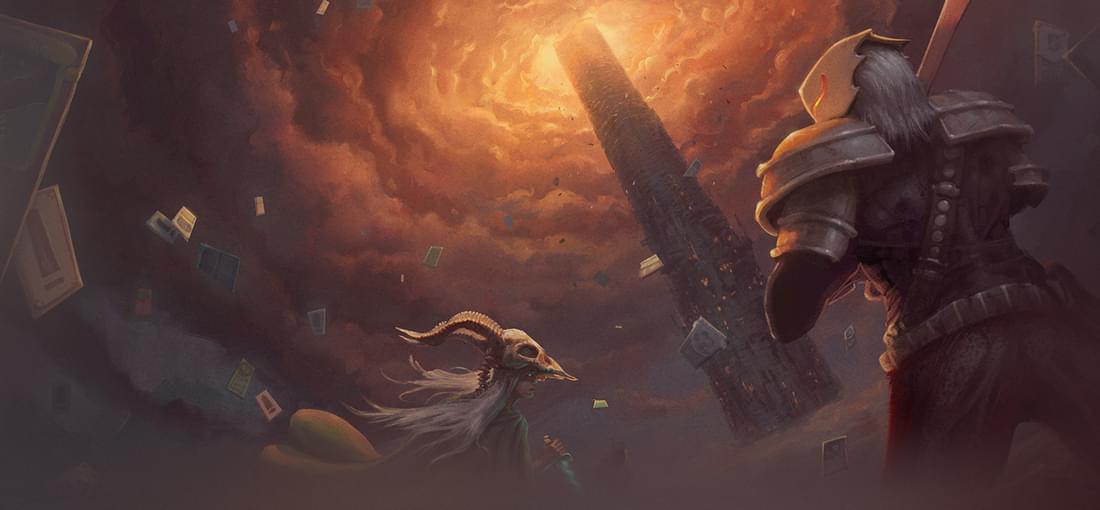
Slay the Spire is an absolute classic, a holy grail that managed to land what roguelikes are truly about. It's not just about having every game be a different experience, it's about making it worthy to replay it over and over and over. Some get it wrong making the core experience (what you play over and over) too long or too slow, some get it wrong in terms of heuristics (meaning you always end up defaulting to a trusted method to win), some get it wrong making the RNG too important so it ends up feeling unfair. After playing enough you can feel a lot of work went to find that right balance, and it paid off tremendously. What Slay the Spire nailed other than that is the casual nature of the game, how fun it feels to just go with whatever strategy and see where it takes you, thanks to that carefully managed balance, it feels rewarding in a way very few roguelikes, about cards or about whatever, can achieve. That's the secret sauce, it's a game that you can feel confident you can come back to any time knowing it will entertain you.